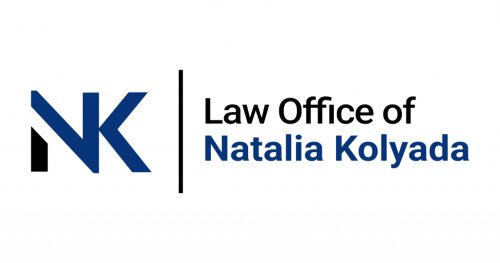Best Accounting & Auditing Lawyers in Boston
Share your needs with us, get contacted by law firms.
Free. Takes 2 min.
List of the best lawyers in Boston, United States
About Accounting & Auditing Law in Boston, United States:
Accounting & Auditing law in Boston, United States governs the rules and regulations related to financial reporting, auditing, tax compliance, and other key aspects of accounting practices. These laws ensure transparency, accuracy, and accountability in financial transactions within businesses and organizations.
Why You May Need a Lawyer:
You may need a lawyer specializing in Accounting & Auditing if you are facing issues such as tax disputes, financial fraud allegations, IRS audits, compliance violations, or disputes with clients or stakeholders. A lawyer can help you navigate the complex legal requirements and protect your rights in such situations.
Local Laws Overview:
In Boston, United States, Accounting & Auditing laws are primarily governed by federal regulations such as the Internal Revenue Code, Securities and Exchange Commission (SEC) rules, and Generally Accepted Accounting Principles (GAAP). Additionally, Massachusetts state laws and regulations may also impact accounting practices within the state.
Frequently Asked Questions:
1. What is the role of an accountant in Boston?
An accountant in Boston is responsible for managing financial records, preparing tax returns, analyzing financial data, and providing financial advice to individuals or organizations.
2. When should I hire an auditor for my business in Boston?
You may need to hire an auditor for your business in Boston to ensure compliance with financial regulations, detect fraud or errors in financial reporting, and provide stakeholders with an independent assessment of your financial statements.
3. How can I choose the right accounting firm in Boston?
When choosing an accounting firm in Boston, consider factors such as their experience, expertise in your industry, reputation, and the services they offer. It is also essential to ensure that the firm complies with all legal and ethical standards.
4. What are the tax implications for businesses in Boston?
Businesses in Boston are subject to federal, state, and local tax laws that govern income tax, sales tax, property tax, and other taxes. It is crucial to comply with these tax laws to avoid penalties and legal consequences.
5. How can a lawyer help me with financial fraud allegations in Boston?
A lawyer specializing in Accounting & Auditing can help you defend against financial fraud allegations, investigate the allegations, and represent you in legal proceedings to protect your rights and reputation.
6. What are the consequences of non-compliance with accounting regulations in Boston?
Non-compliance with accounting regulations in Boston can lead to penalties, fines, legal action, reputational damage, and financial losses for your business. It is vital to stay updated on accounting laws and regulations to avoid non-compliance issues.
7. Can I represent myself in an IRS audit in Boston?
While you are legally allowed to represent yourself in an IRS audit in Boston, it is advisable to seek legal assistance from a lawyer specializing in tax law to navigate the audit process effectively and protect your rights.
8. How can I resolve a dispute with a client over financial matters in Boston?
To resolve a dispute with a client over financial matters in Boston, you can seek legal advice from an Accounting & Auditing lawyer who can review the financial documents, negotiate with the client, and represent you in mediation or litigation if necessary.
9. What are the key differences between financial accounting and managerial accounting in Boston?
Financial accounting focuses on preparing financial statements for external stakeholders, such as investors and regulators, while managerial accounting focuses on providing financial information to internal decision-makers within a business in Boston.
10. How can I stay updated on changes in accounting laws and regulations in Boston?
To stay updated on changes in accounting laws and regulations in Boston, you can consult professional accounting organizations, attend industry seminars or conferences, subscribe to accounting publications, and seek guidance from legal professionals specializing in Accounting & Auditing.
Additional Resources:
For additional resources related to Accounting & Auditing law in Boston, you can visit the Massachusetts Society of Certified Public Accountants (MSCPA) website, the Massachusetts Department of Revenue (DOR) website, and the American Institute of Certified Public Accountants (AICPA) website for valuable information and guidance.
Next Steps:
If you require legal assistance in Accounting & Auditing in Boston, United States, consider consulting with a reputable Accounting & Auditing lawyer who can provide you with expert advice, representation, and support in navigating the complex legal landscape of financial regulations and compliance requirements.
Lawzana helps you find the best lawyers and law firms in Boston through a curated and pre-screened list of qualified legal professionals. Our platform offers rankings and detailed profiles of attorneys and law firms, allowing you to compare based on practice areas, including Accounting & Auditing, experience, and client feedback.
Each profile includes a description of the firm's areas of practice, client reviews, team members and partners, year of establishment, spoken languages, office locations, contact information, social media presence, and any published articles or resources. Most firms on our platform speak English and are experienced in both local and international legal matters.
Get a quote from top-rated law firms in Boston, United States — quickly, securely, and without unnecessary hassle.
Disclaimer:
The information provided on this page is for general informational purposes only and does not constitute legal advice. While we strive to ensure the accuracy and relevance of the content, legal information may change over time, and interpretations of the law can vary. You should always consult with a qualified legal professional for advice specific to your situation.
We disclaim all liability for actions taken or not taken based on the content of this page. If you believe any information is incorrect or outdated, please contact us, and we will review and update it where appropriate.









